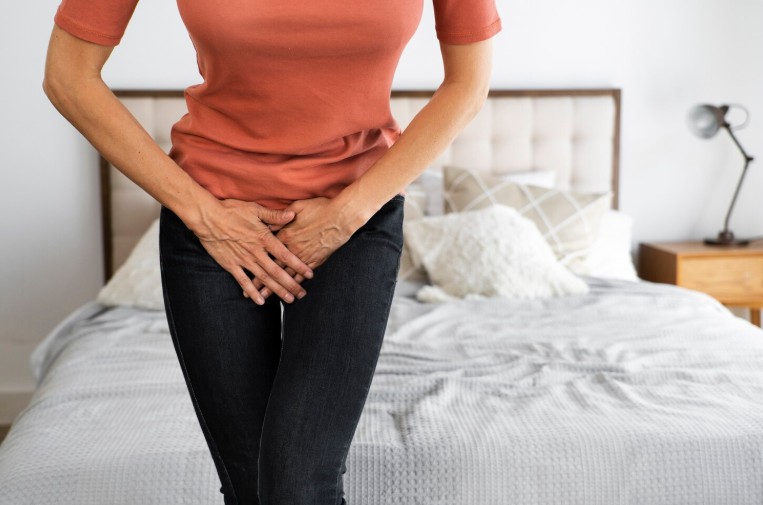Vaginal health is a vital aspect of a woman’s overall well-being, yet it is often overlooked due to stigma or lack of awareness. Proper hygiene, regular checkups, and understanding your body are essential to prevent infections, discomfort, and long-term reproductive issues.
Dr. Shweta Mendiratta, a leading gynecologist in India, emphasizes that maintaining vaginal health is not only about cleanliness but also involves a combination of lifestyle, diet, and awareness. Here’s a detailed guide on how to take care of your vaginal health.
- Maintain Proper Hygiene
Good hygiene is the first step in keeping your vagina healthy. However, it is important to follow the right practices:
- Use mild, unscented soap or a gentle intimate wash. Avoid harsh chemicals or scented products.
- Wipe front to back after using the toilet to prevent bacterial infections.
- Wear cotton underwear to allow proper ventilation and reduce moisture buildup.
- Change sanitary pads or tampons regularly during periods to prevent bacterial growth.
- Keep a Balanced pH
The vagina has a natural acidic pH (around 3.8–4.5) that prevents harmful bacteria and yeast overgrowth. Disrupting this balance can lead to infections such as bacterial vaginosis or yeast infections.
Tips to maintain a healthy vaginal pH:
- Avoid douching, as it disrupts natural flora.
- Limit use of scented tampons, pads, or soaps.
- Consume probiotics through yogurt or supplements to promote healthy bacteria.
- Safe Sexual Practices
Sexual activity can impact vaginal health. Following safe practices reduces the risk of infections and promotes overall reproductive wellness:
- Use condoms to prevent sexually transmitted infections (STIs).
- Limit the number of sexual partners.
- Communicate with your partner about sexual health.
- Ensure proper genital hygiene before and after sexual activity.
- Regular Gynecological Checkups
Routine visits to a gynecologist are crucial for early detection of infections, cervical abnormalities, or other reproductive issues.
Recommended checkups include:
- Pap smear tests: Detect early signs of cervical cancer.
- HPV screening: Identify high-risk HPV strains.
- Vaginal swab tests: Detect bacterial or yeast infections.
Dr. Shweta Mendiratta, one of the top gynecologists in India, suggests annual checkups even if there are no symptoms, as many conditions are asymptomatic in the early stages.
- Diet and Hydration for Vaginal Health
What you eat directly affects your vaginal microbiome and overall reproductive health.
Nutrition tips include:
- Probiotic-rich foods: Yogurt, kefir, and fermented foods help maintain good bacteria.
- Hydration: Drink plenty of water to flush out toxins and support healthy mucous membranes.
- Limit sugar intake: Excess sugar can promote yeast infections.
- Healthy fats: Omega-3 fatty acids support hormonal balance and tissue health.
- Avoid Irritants
Certain products can irritate the sensitive vaginal area and cause infections or discomfort. Avoid:
- Scented soaps, bubble baths, and intimate sprays
- Tight synthetic underwear
- Excessive use of antiseptic wipes
Opt for mild, natural, and breathable products to maintain comfort and hygiene.
- Manage Stress and Maintain Hormonal Balance
Stress, hormonal fluctuations, and irregular menstrual cycles can negatively affect vaginal health. Maintaining a healthy lifestyle helps prevent imbalances:
- Engage in regular exercise to boost circulation and immunity.
- Practice yoga or meditation to reduce stress.
- Consult your gynecologist for hormonal assessments if experiencing unusual symptoms.
- Early Signs to Watch Out For
Even with proper care, certain symptoms should prompt a consultation with a gynecologist:
- Unusual vaginal discharge with odor
- Itching, burning, or irritation
- Pain during intercourse
- Painful urination
- Irregular bleeding or spotting
Early detection and treatment prevent complications and improve overall reproductive health.
FAQs: Vaginal Health
- How often should I visit a gynecologist?
It is recommended to visit your gynecologist once a year for routine checkups and screenings, even if you have no symptoms.
- Is douching good for vaginal hygiene?
No. Douching disrupts the natural pH and increases the risk of infections. Gentle washing is sufficient.
- Can diet affect vaginal health?
Yes. Foods rich in probiotics, hydration, and low sugar help maintain a healthy vaginal microbiome.
- How can I prevent yeast infections?
Avoid tight synthetic clothing, maintain proper hygiene, limit sugar intake, and consume probiotics regularly.
- Are intimate washes necessary?
Not always. Mild, unscented washes can help, but the vagina is self-cleaning, and harsh products can do more harm than good.
- When should I see a gynecologist urgently?
Seek immediate care if you experience unusual discharge, strong odor, pain, or spotting between periods.
Conclusion
Maintaining vaginal health is about a holistic approach — hygiene, diet, lifestyle, and regular gynecological care. With guidance from experienced gynecologists like Dr. Shweta Mendiratta, women can prevent infections, manage symptoms early, and ensure long-term reproductive wellness.
Prioritize your vaginal health today — because prevention is always better than cure!





